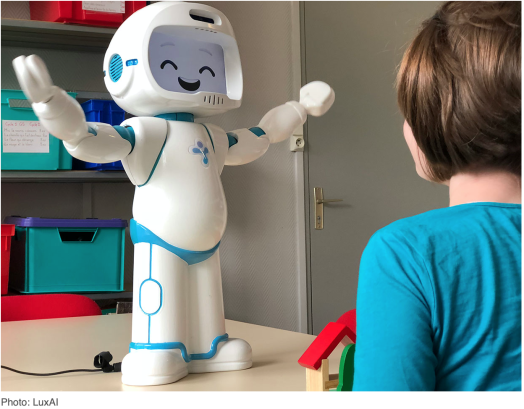
Will the future physiotherapist be a robot ?
Physiotherapy focusses essentially on the recovery of disorders of human posture and/or movements. As such, the clinical target as well as the methods used, are to a great extent mechanistic: increasing the range of motion of joints, increasing muscle force, correcting movement patterns, exercises for enhancing the work capacity, etc. The exponential grow of the technological knowledge of human-assisting robotic devices, makes them employable for therapeutic use: robotic systems actually can assist paralyzed patients in walking or in supporting their arm-hand function. Even, brain-computer interfaces enable patients to control the robotic devices by making use of the brain signals when patients think of certain movements. All these developments are based on accurate knowledge of the human movements and the necessary knowledge of electromechanics, control systems and miniaturising electromotors. One of the practical endpoints are intelligent prostheses.
However, some would correctly state that working with patients involves more than mere mechanistic treatments. As physiotherapists, we also need to take into account the emotional and communicative aspects of our patients in order to treat them in a holistic way. But even at that level robots become progressively more and more skilled. Social robots have been developed that are able to communicate in a simple way with patients and to register facial emotions. They have been shown to interact favourably with children with autism or with elderly to encourage them to do physical exercises.
In that way it is not unthinkable that in the future robots will combine their mechanistic and communicative and emotional properties to help patients in their treatments. If they once will replace the physiotherapist however is a speculative but intriguing question, taking into account the complexity of the diagnostic and therapeutic process and the significant role of the interaction between the therapist and the patient. But, who knows?
Eric Kerckhofs
a full professor in neurological rehabilitation and rehabilitation psychology and coordinator of the neurorehabilitation part of the RERE-research group. Furthermore, also co-director of the Center for Neurosciences at VUB for the pillar Brain, cognition & behavior.
References and further reading:
Kerckhofs E, Swinnen E, Lefeber N, De Keersmaecker E, Joos E. (2019). Do the physiotherapist and the robot walk hand in hand? In: Jacobs A, Tytgat L, Maus M, Meeusen R, Vanderborght B (eds), Homo roboticus, VUBPress, 189-195.
